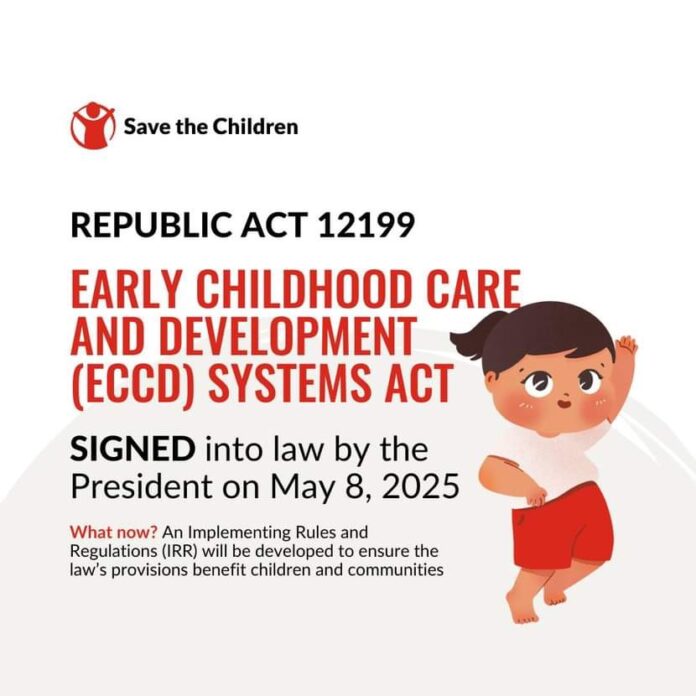The recently signed Republic Act 12199, also known as the Early Childhood Care and Development (ECCD) Systems Act, marks a pivotal step toward inclusive early childhood support in the Philippines, especially for children with disabilities.
The law underscores the government’s responsibility to ensure the holistic development of every child—from birth to age eight—through a coordinated ECCD System that integrates health, nutrition, education, and social services. It mandates that these services uphold equitable and inclusive standards, explicitly addressing the long-standing barriers faced by children with disabilities.
“This law addresses those gaps head-on,” said Joy Sampang, ECCD technical advisor at Save the Children Philippines, which played a key advocacy role in shaping the legislation through the EDCOM II Technical Working Group. “Children with disabilities often face delayed identification due to screening gaps, stigma, or lack of awareness. These missed opportunities during early childhood have life-long consequences.”
Among the law’s inclusive provisions are requirements for reasonable accommodation, accessible learning environment, and respect for cultural and linguistic diversity. Children with disabilities must be supported using the most appropriate language and communication methods, ensuring they can thrive academically and socially—especially in the soon-to-be-established Child Development Centers in every barangay.
The legislation also builds on past progress, including the Inclusive Education Act (RA 11650) of 2022, by ensuring inclusion begins from birth.
Save the Children Philippines, alongside Save the Children Hong Kong and bioMérieux, is already modeling the law’s intent through its ABLE project, reaching over 1,700 children and their families in Taguig, Parañaque, and Pateros. The initiative trains ECCD workers in inclusive practices, strengthens referral systems, and supports families with responsive care strategies. A pilot conditional cash transfer program is also in the works to help low-income families access assessments and early interventions.
“We’re seeing encouraging results—earlier access to services, more engaged parents, and growing local government ownership,” said Sampang. “We’re committed to helping replicate these gains nationwide and ensuring the law’s provisions are effectively implemented through its Implementing Rules and Regulations.”
To learn more about Save the Children Philippines’ programs supporting inclusive early education, visit www.savethechildren.org.ph.







